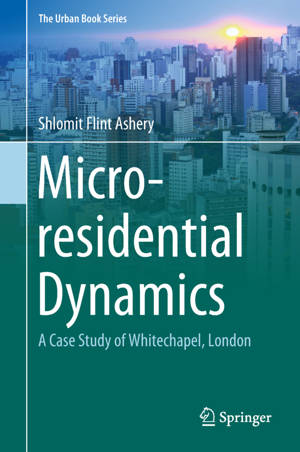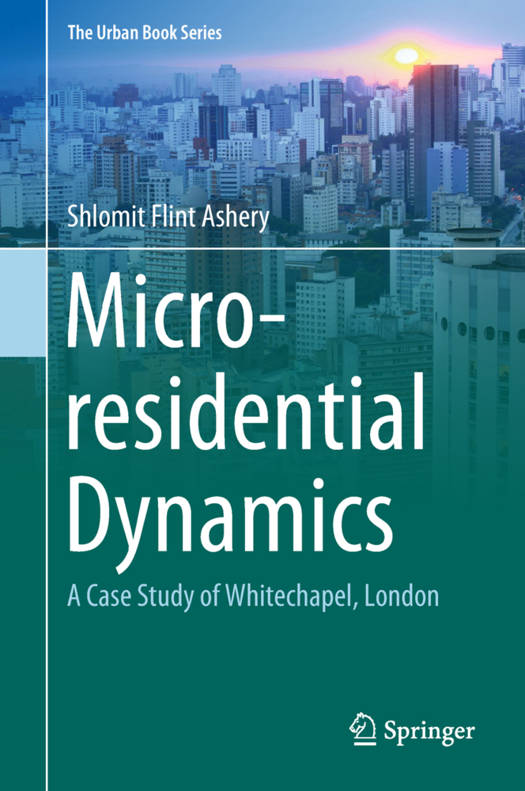
Je cadeautjes zeker op tijd in huis hebben voor de feestdagen? Kom langs in onze winkels en vind het perfecte geschenk!
- Afhalen na 1 uur in een winkel met voorraad
- Gratis thuislevering in België vanaf € 30
- Ruim aanbod met 7 miljoen producten
Je cadeautjes zeker op tijd in huis hebben voor de feestdagen? Kom langs in onze winkels en vind het perfecte geschenk!
- Afhalen na 1 uur in een winkel met voorraad
- Gratis thuislevering in België vanaf € 30
- Ruim aanbod met 7 miljoen producten
Zoeken
€ 153,95
+ 307 punten
Uitvoering
Omschrijving
This book examines how non-economic inter- and intra-group relationships were reflected in residential patterns around the first decade of the 21st century in Whitechapel, an old yet attractive absorption neighbourhood in east London, UK. It sheds light on different levels of organisation that shape urban space and suggests an integrated understanding linking socio-cultural-religious norms and the urban environment that could be extrapolated to other cities. It studies core methodologies through joining of detailed, primary empirical research, collected through direct engagement with the communities of interest, with a wider theoretical and modelling framework. This study identifies the main engines of organised neighbourhood change and the difficulties of planning. It deals with individuals in the housing market and sheds light on similar processes occurring in other city centres with diverse population groups.
Based on residential records at the resolution of single family and apartment covering a period of 17 years, the study reveals and analyses powerful mechanisms of residential relations at the apartment, building and the near neighbourhood level. Taken together, these revealed mechanisms are candidates for explaining the dynamics of residential segregation in the area during the period 1995 to 2012. Whitechapel's communities are extremely diverse, composed of 27 ethnic and religious groups and sub-groups. The residential preferences of group members are highly affected by the need to live among "friends" - other members of the same group. How is it that the area has been so attractive for so many people to live in, whilst at the same time being so diverse that people cannot achieve their stated preferences to live amongst 'friends'?
Based on residential records at the resolution of single family and apartment covering a period of 17 years, the study reveals and analyses powerful mechanisms of residential relations at the apartment, building and the near neighbourhood level. Taken together, these revealed mechanisms are candidates for explaining the dynamics of residential segregation in the area during the period 1995 to 2012. Whitechapel's communities are extremely diverse, composed of 27 ethnic and religious groups and sub-groups. The residential preferences of group members are highly affected by the need to live among "friends" - other members of the same group. How is it that the area has been so attractive for so many people to live in, whilst at the same time being so diverse that people cannot achieve their stated preferences to live amongst 'friends'?
Specificaties
Betrokkenen
- Auteur(s):
- Uitgeverij:
Inhoud
- Aantal bladzijden:
- 130
- Taal:
- Engels
- Reeks:
Eigenschappen
- Productcode (EAN):
- 9783030006013
- Verschijningsdatum:
- 26/10/2018
- Uitvoering:
- Hardcover
- Formaat:
- Genaaid
- Afmetingen:
- 188 mm x 236 mm
- Gewicht:
- 408 g

Alleen bij Standaard Boekhandel
+ 307 punten op je klantenkaart van Standaard Boekhandel
Beoordelingen
We publiceren alleen reviews die voldoen aan de voorwaarden voor reviews. Bekijk onze voorwaarden voor reviews.









